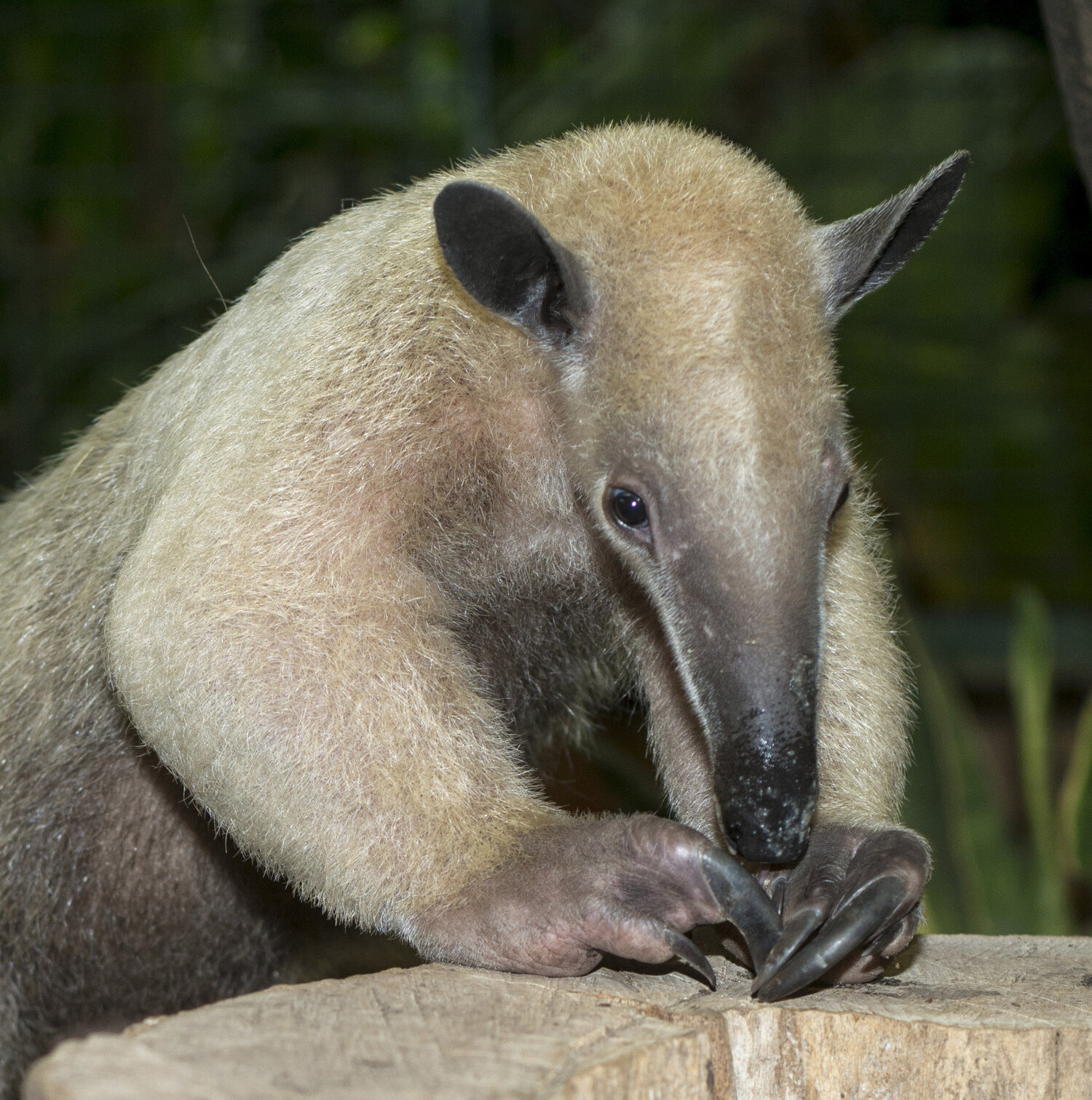For a few seconds, a long, tiny nose emerges and sniffs cautiously at the air. Then it quickly retreats back into mum’s thick fur. On 4 April 2018, something of a sensation occurred at Tierpark Berlin’s Primate House: Germany’s very first baby collared anteater, also known as a tamandua, was born – right here in Berlin! “This species of anteater is rarely found in zoos, and we are delighted about the birth of this special baby,” said Zoo and Tierpark Director Dr Andreas Knieriem. “The mother is still guarding her precious cargo carefully, so visitors hoping to catch a glimpse of the little one will either have to be patient or very lucky.”
The baby’s parents, Anna and Arthur, came to Tierpark Berlin in 2013 from Guyana in South America. While mother Anna and her infant are currently sharing living quarters with six silvery marmosets – who also have their own adorable babies at the moment – father Arthur is living with the other female tamandua, Inti, in the Pachyderm House. In autumn 2017, the keepers noticed that Arthur and Anna had mated – and six months later the little anteater was born.
“We won’t examine the baby for another four months, when it’s no longer clinging to its mother and has become more independent,” explained veterinarian Dr Andreas Pauly. “Until then, mother and child will be left undisturbed. It was really tremendous luck that we were even able to snap a photograph.” Although Anna and her baby are currently sleeping nearly all day long and only change their position occasionally, the keepers have been able to see that the baby has developed well over the past week and that Anna seems to be having no trouble caring for it.
Collared anteaters live in the tropical rainforests of South America and are related to the giant anteater. While their larger relatives live almost exclusively on the ground, tamanduas spend much of their lives in the treetops. They are good climbers, thanks to their partially prehensile tails. Their diet consists of ants, termites, bees and fruits.
